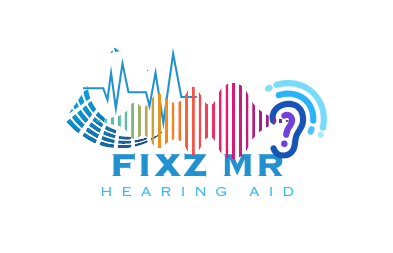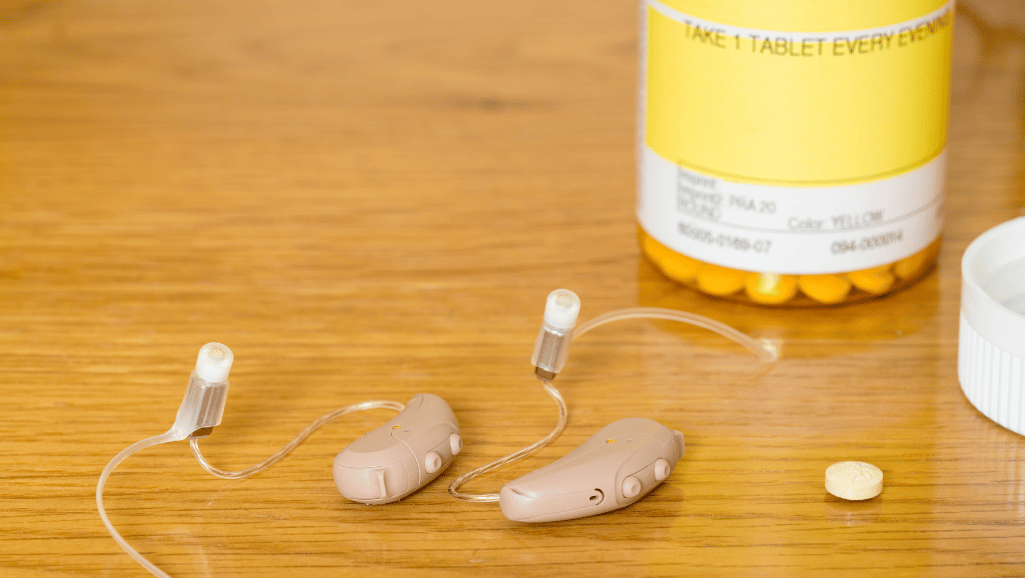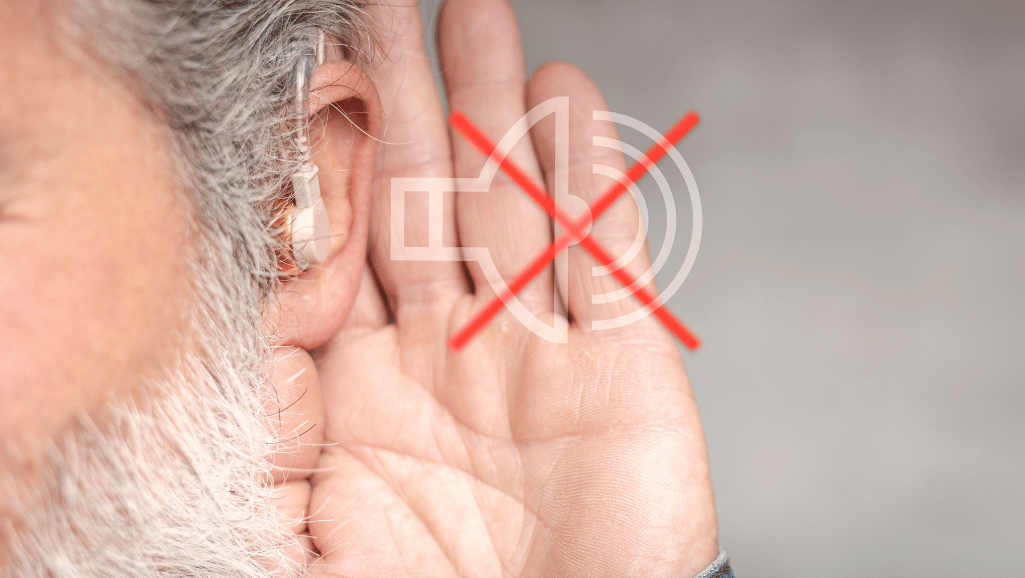The search for hearing loss medications is crucial. Millions worldwide face this challenge. Recent findings show how some drugs affect hearing. It’s important to balance health treatments with hearing health.
Looking for the right hearing loss drugs is key. We must understand how some medicines can harm hearing. This article will explore treatments for hearing loss. It aims to help individuals and doctors make smart choices for hearing health.
Key Takeaways
- The global necessity for effective hearing loss drugs aligned with safe pharmacological practices.
- Recognition of the ototoxic potential in PDE5Is and its impact on hearing loss medication management.
- The importance of exploring treatments for hearing loss that do not compromise auditory functions.
- Ongoing research and clinical studies to further understand and improve hearing loss treatments.
- Advocacy for comprehensive monitoring for patients on medications with known or potential ototoxic effects.
Understanding Hearing Loss and its Impact on Quality of Life
Exploring hearing loss shows us its wide reach and deep impact on people’s lives. It’s crucial to deeply understand and analyze this issue to tackle it effectively.
The Prevalence of Hearing Loss
Many people face hearing loss, more than those with diabetes, cancer, or vision problems. This issue affects public health and personal lives greatly. In jobs like mining and construction, hearing loss is even more common, causing big health problems for workers.
Common Symptoms and Types of Hearing Loss
Knowing the signs of hearing loss helps in managing it better. Symptoms range from missing parts of conversations to tinnitus, which is ringing in the ears. There are different types of hearing loss, like sensorineural, conductive, and mixed, each needing its own treatment plan.
Assessing the Social and Emotional Effects
Hearing loss can make it hard to connect with others, limit job chances, and make people feel isolated. It also has a big emotional impact, causing frustration, depression, and feeling less capable. This makes life harder for those affected.
In short, hearing loss affects many parts of life and society. We need to address it fully in healthcare and social support to help those affected and their communities.
The Role of Medications in Hearing Loss Treatment
Looking into medication for hearing loss and drug therapy for hearing impairment shows a complex world. Here, many drugs aim to lessen symptoms and boost hearing. This shows how treatment is complex and how important it is to manage medications well to improve life quality.
Drugs used for hearing loss cover a wide range, from antibiotics that can harm the ears to new treatments that try to fix hearing at a cell level. Choosing to use drugs is a careful process that looks at the good and bad effects they might have.
For those with hearing problems, doctors might prescribe macrolide antibiotics like azithromycin. This drug can affect hearing but only temporarily. Loop diuretics like furosemide are used carefully because they can harm hearing, sometimes permanently.
Over-the-counter hearing aids are now an option for mild to moderate hearing loss. They show a move towards treatments that are easy to get, affordable, and simple to use. This shows how hearing health care is changing.
| Drug Category | Risk of Hearing Loss | Reversibility |
|---|---|---|
| Aminoglycosides (e.g., gentamicin) | High | Possible |
| Macrolide Antibiotics | Moderate | Usually Reversible |
| Loop Diuretics | Variable | Often Reversible |
| Erectile Dysfunction Meds | Moderate | Under Investigation |
| OTC Pain Relievers (High Dose Aspirin) | Low | Reversible |
Seeing a healthcare provider early if hearing changes happen is key. This can help figure out if the changes are from medicine or something else. Changing treatments to balance their good and bad effects is crucial in managing hearing loss treatments.
Searching for the right medication for hearing loss is an ongoing task in medicine. Research into drug therapy for hearing impairment is promising. Work on gene therapy and stem cells could lead to new ways to fix hearing in the future.
Hearing loss medications
In the world of healthcare, hearing loss treatment options have grown a lot. They offer hope and better life quality to those with hearing problems. This part looks at the pharmaceutical treatment for hearing impairment. It also compares hearing loss drug therapy with surgery.
Overview of Current Pharmaceutical Options
New advances in hearing loss drug therapy have brought many new medicines. These help manage symptoms and improve hearing. They include things like corticosteroids, vasodilators, and intratympanic injections. These treatments aim to lessen inflammation, boost blood flow, or treat the root causes of hearing loss.
Drug Therapy Vs. Surgical Treatments
Choosing between surgery vs medication for hearing loss depends on many things. Surgery, like cochlear implants, is often for severe cases and can last a long time. Medications are a less invasive option. They are good for patients who want a simpler approach or don’t need surgery yet.
The choice between medication and surgery depends on the person’s condition, how bad their hearing loss is, and their overall health. Both surgery vs medication for hearing loss aim to improve hearing and quality of life.
| Treatment Type | Typical Uses | Benefits | Considerations |
|---|---|---|---|
| Hearing Aids | Mild to moderate hearing loss | Amplifies sound; customizable | User must adjust to device |
| Intratympanic Steroids | Sudden sensorineural hearing loss | Direct treatment to inner ear | May require multiple treatments |
| Cochlear Implants | Severe hearing impairment | Provides a long-term solution | Involves surgical risks |
This overview shows the different hearing loss treatment options available. It helps people and doctors make good choices based on the type and severity of hearing loss.
Prescription Hearing Loss Drugs: A Deep Dive
Understanding sensorineural hearing loss (SNHL) means knowing its many causes and treatments. SNHL happens when the inner ear, auditory nerve, or brain gets damaged. This can be from loud noises, infections, genetic issues, or some medicines. People with SNHL can find relief with hearing aids, cochlear implants, and prescription drugs for hearing loss.
Choosing hearing loss prescription medication is a careful process. Doctors look at the patient’s condition and health history. Some drugs like benzodiazepines and tricyclic antidepressants might help with SNHL symptoms. But, doctors must weigh their benefits against possible side effects.
- They can make the auditory nerve work better, helping to improve hearing.
- They can lessen tinnitus and other symptoms, making life better for patients.
- They can treat conditions like anxiety or depression that can worsen hearing loss.
Preventing hearing loss is also key. For those at risk from loud noises or genetics, hearing loss prescription medication might be used with a doctor’s guidance. Research is ongoing to make these drugs safer and more effective, opening up new treatment options.
In summary, prescription drugs for hearing loss are a valuable addition to traditional treatments. Patients and doctors must understand the risks and benefits well. This ensures decisions are informed and aim to improve health outcomes.
Exploring Over-the-Counter Hearing Loss Remedies
Many people are looking for easy and affordable ways to help with hearing loss. They are checking out over-the-counter hearing loss remedies instead of traditional options. But, how well do these non-prescription solutions work?
Effectiveness of Non-Prescription Therapies
Non-prescription hearing loss therapies are becoming more popular. They offer a quick way to get help without a doctor’s visit. Over-the-counter hearing aids are a key example. They help people with mild to moderate hearing loss.
But, they’re not for everyone. They’re only for adults over 18 and don’t match the quality of devices from audiologists. These aids also can’t fix severe hearing loss. You might need more advanced devices for that.
Some insurance plans might cover hearing tests but not OTC hearing aids. This means users could end up paying a lot out of pocket.
Natural Supplements and their Claims
There’s also interest in natural supplements for hearing loss. These products claim to improve hearing. But, their effectiveness is not proven by science. It’s important to talk to a healthcare professional before trying them.
In conclusion, over-the-counter hearing loss remedies can be helpful for mild hearing issues. But, they have limits and quality differences. Talking to a healthcare provider can help decide if they’re right for you or if you need something more tailored.
| Feature | OTC Hearing Aids | Prescription Hearing Aids |
|---|---|---|
| Cost | $400 – $1,600 | $2,000 – $6,000 |
| Customization | Limited | High |
| Insurance Coverage | Unclear | Mostly covered |
| Recommended for | Mild to moderate loss | All degrees of loss |
| Added Features | Basic | Advanced (Bluetooth, remote adjustments, etc.) |
Pharmaceuticals for Hearing Loss: Safety and Efficacy
The search for effective treatments for hearing loss through drugs is backed by thorough clinical trials for hearing loss medications. These trials are key in understanding how these drugs work across different hearing levels. We’ll look into the latest trial results and talk about the side effects of hearing loss drugs and medication contraindications.
Analyzing Clinical Trial Data
Recent trials show promising results for hearing loss medications but call for careful hope. For instance, Phase I trials with 15 patients showed a 45% better hearing at some frequencies. But Phase IIa trials with 44 patients had more complex results, with 347 adverse events, only a few severe.
This shows the need for thorough testing in multiple phases. It helps us understand how different patients react to different treatments.
Drug Side Effects and Contraindications
While hearing improvements are encouraging, the side effects of hearing loss drugs and their risks are a concern. Some patients got better, but others had adverse effects. This is worrying for drugs meant for long-term use.
It’s important to know all the possible side effects, from mild to severe. In the trials, many had minor issues, but rare severe cases show the need for careful patient care.
In summary, clinical trials for hearing loss medications are crucial for ensuring their safety and effectiveness. These studies help doctors make the best treatment plans, considering the risks of side effects of hearing loss drugs and medication contraindications. As research goes on, we can hope to greatly improve life for those with hearing loss.
Ototoxic Drugs: Identifying and Avoiding
It’s important to know about ototoxic drugs to prevent drug-induced hearing loss. These drugs can harm the ear and cause hearing and balance problems. Knowing which drugs are ototoxic helps us avoid them when we can.
Categories and Examples of Ototoxic Drugs: Ototoxic drugs include antibiotics like aminoglycosides, chemotherapy drugs such as cisplatin, and some painkillers. Even certain diuretics and antibiotics can harm hearing or cause ringing in the ears. Knowing about these drugs helps patients and doctors make better choices.
| Drug Type | Common Names | Incidence of Ototoxicity | Common Symptoms |
|---|---|---|---|
| Aminoglycosides | Streptomycin, Gentamicin, Neomycin | Up to 33% in adults | Hearing loss, Tinnitus |
| Chemotherapy Agents | Cisplatin | Varies by treatment protocol | Hearing loss, Tinnitus, Poor balance |
| NSAIDs | Ibuprofen, Naproxen | Depends on dosage and duration | Tinnitus, Hearing difficulties |
| Loop Diuretics | Furosemide, Bumetanide | Higher dosages more likely | Fullness in ears, Vertigo |
To avoid drug-induced hearing loss, get regular hearing tests if you’re on ototoxic drugs. Try to find other medicines that don’t harm your hearing. Teaching patients and doctors about these risks can help lower hearing problems from drugs.
- Talk to your doctor about the risks of the drugs you’re taking.
- Get your hearing checked often if you’re on ototoxic drugs.
- Ask about safer alternatives for your condition.
- Tell your doctor right away if you notice any hearing or balance changes.
By looking after our hearing and being careful with our medicines, we can lower the risk of ototoxic drugs causing drug-induced hearing loss. Teaching patients and improving healthcare can help keep our hearing and improve our lives.
Advancements in Medication for Hearing Impairment
The field of treating hearing loss is changing fast, thanks to new advancements in hearing loss medication. These changes include genetic and regenerative research. They offer hope for better hearing and quality of life for those with hearing loss.
Breakthrough Treaties on the Horizon
Gene therapy and stem cell research are leading the way in breakthrough treatments for hearing loss. Studies in animals show promise. Gene therapy has helped mice with hearing loss to hear again. Stem cell therapy could regenerate hair cells in the ear, helping us hear better.
New medicines are also being developed to fight hearing loss. For example, ISRIB can stop hair cells from dying in animals. It does this by blocking a stress response in the ear cells. This could lead to new treatments for humans at risk of hearing loss.
Genetic Research and Hearing Restoration
Genetics play a big role in hearing loss. Recent genetic research for hearing loss has made big strides. Scientists found a link between a gene mutation and progressive deafness.
This discovery could lead to new genetic therapies. It helps us understand how hearing loss happens. We can then develop treatments that fit each person’s genetic makeup.
These advances mean we’re getting closer to treating hearing loss. We aim to improve or even reverse hearing loss. With more research and investment, restoring hearing and improving lives is within reach.
Innovations in Drug Therapy for Hearing Loss
The world of hearing loss treatment is changing fast with new innovations in drug therapy. The latest research on hearing loss medications shows big steps forward. These changes are making a big impact on medical science and treatment options.
The Latest Research Findings
Frequency Therapeutics is leading the way in fighting hearing loss. They’ve started research with over 200 patients in several studies. Early results are very promising: patients saw statistically significant improvements in speech perception after just one injection.
These effects lasted about two years, which is a big deal for hearing loss treatments.
Future Directions for Hearing Loss Medication
Looking ahead, the future of hearing loss medication looks exciting. Frequency Therapeutics is moving forward with more studies, including a 124-person study. Everyone is looking forward to early results next year, hoping for new treatments.
The company is also working on a new drug for multiple sclerosis. This shows how versatile their research could be.
This focus on improving hearing loss treatments shows a bigger trend in healthcare. It’s all about making things better and finding new ways to cure complex problems. This gives hope to people with hearing loss, offering them a chance for better hearing and a better life.
Hearing Loss Treatment Medications: Case Studies and Reviews
The study of hearing loss medication reviews and case studies of hearing loss treatment shows the challenges and progress in treating this common issue. Looking at real data and what users say gives great insights to patients and doctors. They are looking for the best ways to help people.
Only about one-third of people with hearing loss get tested, and many don’t use hearing aids because they are too expensive or they feel embarrassed. This shows we need better and cheaper ways to treat hearing loss.
- Using hearing aids more often in people with dementia helps them feel less alone.
- New hearing aids that you can buy without a prescription cost between $200 and $1,000. This is much cheaper than the $4,000 ones you need a doctor’s prescription for.
Reviews on hearing loss medication stress the need for treatments that fit the specific hearing loss each person has. For example, cochlear implants are best for people with serious hearing loss. This is especially true for Veterans who were exposed to loud noises in combat.
It costs between $3.3 million to $12.8 million a year to treat hearing loss in the U.S. This shows how big the problem is and why we need better treatments fast.
Studies on hearing loss treatment also show new treatments like deep brain stimulation (DBS) for severe tinnitus are working well. This shows that new technologies could really help patients.
In the end, these reviews and studies help us understand what patients need. They also help create treatments that deal with both the physical and mental sides of hearing loss.
Comparative Analysis: Hearing Loss Drug Options
We’re looking into the many treatments for hearing loss. This includes top prescriptions for hearing loss and what people say about hearing loss drug user experiences. We want to give a full view to help people and doctors make better choices about hearing loss medicines.
Top Prescriptions for Hearing Loss Evaluated
Recent studies have shown how well different medicines work for hearing loss. They focus on macrolides, antibiotics that might increase the risk of hearing loss. This look is based on lots of data from scientific studies:
| Study Type | Odds Ratio (OR) | Confidence Interval (CI) |
|---|---|---|
| Randomized Controlled Trials | 1.37 | 1.08–1.73 |
| Case-Control Studies | 1.33 | 1.24–1.43 |
| Patients without Underlying Diseases | 1.53 | 1.38–1.70 |
| Patients with Underlying Diseases | 1.16 | 0.96–1.41 |
| Increased Risk of Tinnitus | 25% Increase | (Vanoverschelde et al., 2021) |
User Experiences and Medication Reviews
People’s stories and medication reviews for hearing impairment show mixed feelings about macrolides. Some say they feel better, but many worry about side effects like tinnitus. Reviews stress the need to talk to a doctor before starting any new medicine for hearing loss.
This deep look at hearing loss medicines tells patients to think about both science and real-life stories. By looking at numbers and personal stories, people can make better choices about their treatments.
Customized Medication Plans for Hearing Loss Management
Customized medication plans are key to managing hearing loss well. Personalizing hearing loss treatment to match each person’s hearing needs makes treatments work better. This approach includes everything from advanced hearing aids to complex cochlear implants, suited for different levels of hearing loss.
Personalizing Treatment Based on Individual Needs
Everyone’s hearing loss needs are different, shaped by how much they hear and their daily life. Some might do well with over-the-counter (OTC) hearing aids for mild to moderate loss. But those with severe loss might need cochlear implants or more extensive help. Keeping an eye on how treatments work is key to making sure they keep helping.
The Importance of Ongoing Monitoring and Adjustments
Hearing loss changes over time, so treatments must too. Audiologists are crucial in this, checking in regularly to see how things are going and tweaking treatments as needed. This could mean updating hearing aids or changing treatment plans to match any hearing changes. This careful attention keeps hearing at its best, improving life quality for those with hearing loss.
New hearing tech brings more ways to tailor treatments, offering hope and better results for those with hearing loss. With ongoing monitoring and adjusting hearing loss treatments, doctors can keep up with hearing changes. This leads to not just better hearing but a better life overall.
Conclusion
Studies show that hearing loss treatment advancements are crucial. Over two-thirds of people over 75 have hearing loss. This highlights the need for effective treatments.
Research links certain medicines to hearing loss. For example, loop diuretics and NSAIDs increase the risk. Loop diuretics were linked to a 40% higher risk of hearing loss over 10 years. NSAIDs raised the risk by 45% in the same period.
A long study with 3,753 participants found dangers in some medicines. Using NSAIDs and loop diuretics together increased the risk by 33%. This shows the importance of careful medicine use.
Doctors and patients must be cautious with these medications. The study’s findings suggest that family history and lifestyle affect hearing loss risk. It’s vital to consider these factors in treatment plans.
Combining patient care with scientific research is crucial. This approach aims for treatments that fit each person’s needs. By understanding the risks of medicines, we can improve treatment plans.
Studies show the wide range of risks from medicines. From TB treatment to antibiotic side effects, the risks are many. By focusing on careful medicine use and detailed tests, we can better manage hearing loss.
FAQ
What are the current effective hearing loss medications?
What are the most common symptoms and types of hearing loss?
How do social and emotional effects impact individuals with hearing loss?
What is the role of medications in treating hearing loss?
How do drug therapy and surgical treatments for hearing loss compare?
Can over-the-counter therapies effectively treat hearing loss?
Are there any natural supplements proven to treat hearing loss?
What are the side effects and contraindications of hearing loss medications?
What are ototoxic drugs, and how can they be avoided?
What breakthrough treatments for hearing loss are on the horizon?
How can I stay informed about the latest research findings on drug therapy for hearing loss?
What are the top prescriptions for hearing loss, and how effective are they?
How important is personalizing treatment for hearing loss?
What does ongoing monitoring entail for someone with hearing loss, and why is it necessary?
Source Links
- Easing the Burden of Tinnitus: A Narrative Review for Exploring Effective Pharmacological Strategies
- New treatment options for hearing loss – Nature Reviews Drug Discovery
- Hearing loss – Diagnosis and treatment – Mayo Clinic
- Corticosteroids, Diuretics, Skin and mucus membrane agents
- Sensorineural deafness Information | Mount Sinai
- Medications and Your Hearing: Navigating Ototoxic Risks
- Over-the-Counter Hearing Aids: Frequently Asked Questions
- Things You Should Know About Over-the-Counter Hearing Aids
- FDA-Approved MEK1/2 Inhibitor, Trametinib, Protects Mice from Cisplatin and Noise-Induced Hearing Loss
- Oseltamivir (Tamiflu), a Commonly Prescribed Antiviral Drug, Mitigates Hearing Loss in Mice
- Ototoxicity: Overview, Aminoglycosides, Other Antibiotics
- List of Ototoxic Medications – Sound Relief Hearing Center
- Ototoxicity: Symptoms, Causes & Treatment
- Advances In Hearing Loss Treatment And Technology – Audiology and Hearing Aid Services, LLC
- Could a Drug Prevent Hearing Loss from Loud Music and Aging?
- Reversing hearing loss with regenerative therapy
- 3 Game-Changing Hearing Innovations on the Horizon
- 8 Medications That Could Be Damaging Your Ears
- Hearing Loss in Adults: Differential Diagnosis and Treatment
- Increased risk of hearing loss associated with macrolide use: a systematic review and meta-analysis – Scientific Reports
- Differential Diagnosis and Treatment of Hearing Loss









